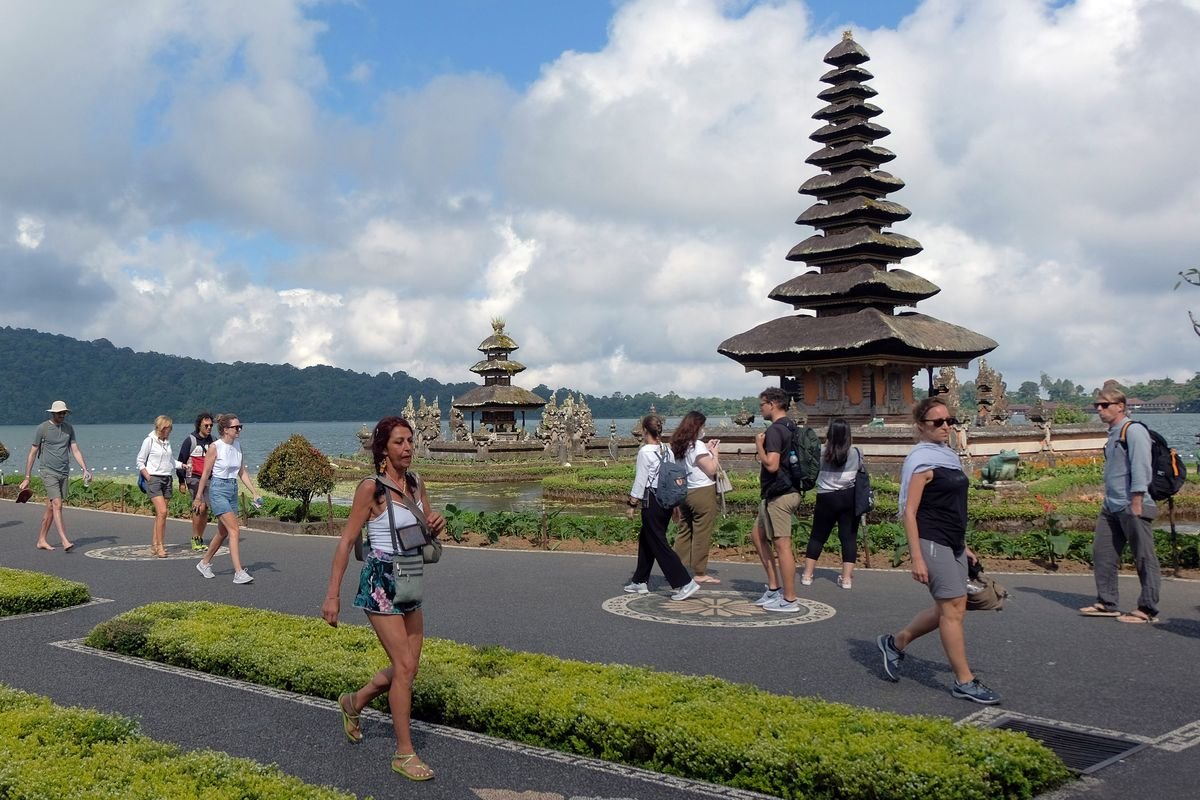Governor of Bali, Wayan Koster, has recently issued the Governor’s Circular Letter No. 7 of 2025, which introduces a new framework for foreign tourists visiting Bali.
This regulation is an improvement and development of the previous Governor’s Circular Letter No. 4 of 2023, which covered similar issues.
Koster explained that although Governor’s Circular Letter No. 4 had been issued, its effectiveness was disrupted due to the end of his term, preventing the regulation from being fully implemented.
According to Detikbali, he stated, “So, not long ago (Governor’s Circular Letter No. 4) was in effect, I finished (my term as Governor of Bali). So it was less impactful. Now, thanks to God, I was re-elected (as Governor) for a second term, and now is the moment to go full speed ahead,” said Koster at the Governor’s Residence, Jayasabha, on Monday, March 24, 2025.
With his re-election as Governor of Bali for a second term, Koster hopes to improve the implementation of this policy.
Koster believes that the issuance of this latest Governor’s Circular Letter aims to create a more orderly and high-quality tourism environment in Bali. The Bali Provincial Government will collaborate with the consulates of various countries in Bali to ensure that foreign tourists comply with these regulations.
“We want tourism that is based on culture, quality, and dignity,” said Koster.
Regulations in Governor’s Circular Letter
This circular letter outlines several obligations and prohibitions for foreign tourists while in Bali. Some of the key obligations include respecting the sanctity of temples, religious symbols, traditions, art, and Balinese culture.
Foreign tourists are also required to wear appropriate clothing in public places and tourist spots, as well as behave respectfully at various locations such as temples, restaurants, and on the streets.
In addition, they must pay tourist fees through the official website, use licensed tour guides, and make transactions in Indonesian rupiah.
Other obligations include using the Indonesian Standard QR Code payment system, adhering to traffic rules, and using registered vehicles. Foreign tourists are also required to stay at accommodations with official permits and follow specific rules at tourist sites.
Prohibitions for Foreign Tourists
In addition to the obligations, this Governor’s Circular Letter also lists several prohibitions for foreign tourists. These include entering sacred temple areas without wearing traditional Balinese clothing, climbing sacred trees, and behaving disrespectfully at sacred sites.
Foreign tourists are also prohibited from littering, using single-use plastics, or engaging in inappropriate behavior such as causing disturbances or spreading hate speech on social media.
Illegal activities such as trading in flora, fauna, cultural artifacts, or sacred objects are strictly prohibited.
Penalties for Violators
Tourists who violate the provisions of this circular will face strict penalties in accordance with applicable laws.
One of the penalties will include being banned from accessing tourist sites for failing to pay the required tourism fees. Additionally, the public is encouraged to report violations through WhatsApp.
“We urge the public to actively report violations through the Siaga WhatsApp number 081-287-590-999,” Koster added.
Supervision and Enforcement of the Regulations
To ensure the effective implementation of this Governor’s Circular Letter, the Bali Provincial Government has tasked the Public Order Police (Satpol PP) with overseeing the enforcement of these regulations. The Bali Regional Police will also take strict action against any violations in accordance with the law.
Koster acknowledged that the implementation of Governor’s Circular Letter No. 4 of 2023 was less than optimal due to the end of his term, and for 1.5 years, Bali’s tourism management did not meet the expected standards.
“The initiative has started with the circular from the Provincial Secretary, beginning with the use of tumblers and discontinuing the use of plastic bottled drinks in the provincial government and regencies/cities across Bali. We will extend this to the village and adat village levels, as well as schools throughout Bali.” Koster explained, as reported by BaliPost.
Therefore, Governor’s Circular Letter No. 7 of 2025 was issued to restore Bali’s tourism management to the standards set by the Governor’s Regulation and related regional regulations.
Koster emphasized that Bali’s tourism must be culturally-based, respect local wisdom, and enforce proper management to improve the quality of tourism.
“We want to create tourism that is based on culture, quality, and dignity. That’s why all tourism stakeholders in Bali will be organized according to the standards set in the regional regulations and the Governor’s regulations in Bali,” said Koster in the delivery of Governor’s Circular Letter No. 7 of 2025 at the Governor’s Residence, Jayasabha, Denpasar, on Monday.
With clearer regulations and strict supervision, it is hoped that Bali will become a more orderly, high-quality, and dignified tourist destination, in line with the expectations of the government and the people of Bali.
Sources: DetikBali, BaliPost
Feat Image : AntaraNews//Nyoman Hendra Wibowo

